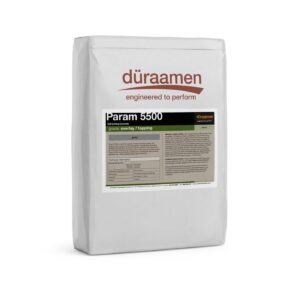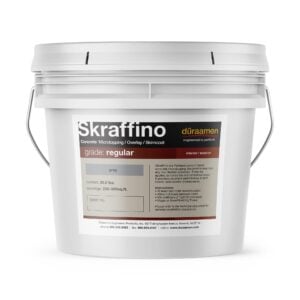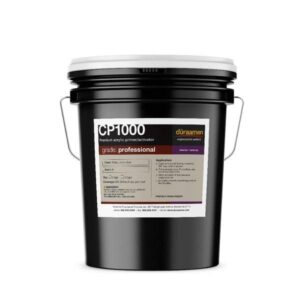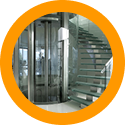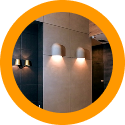Choosing the right floor coating for heavy-duty industrial environments is crucial for ensuring durability, safety, and cost-effectiveness. Among the various options available, polyurethane and epoxy coatings stand out as the top choices for many industries.
This guide will explore the differences between polyurethane and epoxy floor coatings, delving into their chemical properties, application processes, durability, and suitability for different heavy-duty industrial settings. This information will help decision-makers select the best flooring solution tailored to their specific operational needs.
Understanding the Basics: What are Polyurethane and Epoxy Coatings?
Epoxy Coatings
Epoxy coatings are made from two main components: resins and hardeners. When these components are mixed, they undergo a chemical reaction that results in a rigid, plastic-like material. Epoxy coatings are known for their strength, durability, and resistance to wear, making them an ideal choice for floors that endure heavy foot traffic and equipment use. Their seamless surface is also resistant to water, oil, and many chemicals, making them a popular choice in manufacturing plants, garages, and service areas.
Polyurethane Coatings
Polyurethane is a versatile polymer composed of organic units joined by carbamate links. Unlike epoxy, polyurethane coatings are usually solvent-based or water-based and cure through a reaction with moisture in the air. There are two types of polyurethane coatings. One is highly flexible, which makes it resistant to impacts and abrasions and capable of withstanding extreme temperature fluctuations (-80 to 200 degrees Fahrenheit). This flexibility makes polyurethane suitable for floors that experience significant physical dynamics, such as those in large-scale industrial facilities subject to heavy loads and thermal cycling. Rigid polyurethanes are solid and plastic-like.
Chemical Properties and Performance
Understanding epoxy and polyurethane’s chemical properties and performance is critical when choosing a floor coating for heavy-duty applications. Each type of coating offers distinct benefits and limitations depending on the specific environmental conditions and chemical exposures it will face.
Epoxy Floor Coatings: Enhanced Chemical Resistance
Epoxy coatings are highly valued for their molecular structure, which provides exceptional hardness and density. This structure arises from the chemical cross-linking of epoxide resins and polyamine hardeners, which occurs during the curing process. The result is a surface that is not only tough but also exceptionally resistant to various chemicals. This makes epoxy an excellent choice for environments where spills of acids, alkalis, and solvents are likely, such as in laboratories, battery manufacturing plants, and chemical processing facilities.
One of the standout chemical properties of epoxy is its ability to form a non-porous surface. This characteristic ensures that spills do not penetrate the surface, making it easy to clean and maintain. It also helps prevent the growth of bacteria and mold, which is particularly important in food and beverage processing plants where hygiene is paramount. Moreover, epoxy can be engineered to have anti-static properties by incorporating conductive materials within the coating. This is essential in environments where there is a risk of static electricity build-up, which can be a serious hazard in places handling flammable materials or sensitive electronic equipment.
Polyurethane Floor Coatings: Enhanced Elasticity and Chemical Durability
Polyurethane coatings are distinguished by their exceptional elasticity, which stems from their chemical structure composed of flexible polyol chains linked with hard isocyanate groups. This unique composition allows the coating to exhibit greater elongation and recovery capabilities, enabling it to absorb impacts and vibrations more effectively than more rigid materials like epoxy. This property is particularly beneficial in environments that experience frequent mechanical shocks or heavy traffic, such as manufacturing floors or busy commercial garages, where the ability to resist denting and marring is critical.
Additionally, polyurethane is highly resistant to a broad range of chemicals. This resistance is crucial in environments such as paint shops or chemical storage areas, where spills can be frequent, and flooring material needs to withstand aggressive chemical interactions without degrading. Polyurethane’s chemical resistance extends to maintaining its integrity against greasy substances and oils, which makes it an ideal choice for automotive workshops and industries where oil exposure is inevitable.
Performance Under Stress
Both coatings are designed to withstand significant stress, but their performance varies. Epoxy’s robust structure makes it ideal for areas that must support heavy loads without deforming or cracking. This is critical in warehouses and industrial facilities where heavy machinery is in constant operation. In contrast, polyurethane is better suited to environments where floors must endure physical shocks and thermal cycling without suffering damage.
Longevity and Maintenance
Epoxy floors typically have a longer lifespan when maintained properly, although they can be susceptible to scratching and may require professional repair if the surface is damaged. Polyurethane, while potentially less durable against extreme loads, often offers easier maintenance due to its resistance to scratches and minor abrasions. The choice between epoxy and polyurethane will often depend on balancing these aspects with the specific needs of the facility, considering both the type of stress the floor will face and the maintenance regimen that can be supported.
Application Process
Application of Epoxy Coatings
Applying epoxy coatings requires precise preparation. The surface must be clean and free of any contaminants. The mixture has a limited pot life and needs to be applied quickly and cured at a controlled temperature. This can make the application process more complex and time-consuming, potentially disrupting regular operations.
Application of Polyurethane Coatings
Polyurethane coatings can be more forgiving in terms of application conditions. They can be applied in a broader range of temperatures and humidity levels, which is particularly beneficial in climates prone to fluctuating conditions. Additionally, the faster curing time of polyurethane allows for quicker turnaround, minimizing downtime in industrial settings.
Choosing the Right Coating
When selecting a floor coating for heavy-duty industrial applications, it is essential to consider the specific conditions and demands of the environment. Epoxy coatings are ideal for areas that require strong chemical resistance and can sustain heavy loads, such as in manufacturing plants or warehouses. On the other hand, polyurethane coatings are better suited for areas with the potential for physical impacts or frequent temperature changes, like in automotive factories or aircraft hangars.
Ultimately, the decision between polyurethane and epoxy should be based on a thorough assessment of the facility’s needs, environmental conditions, and long-term maintenance capabilities. By choosing the correct type of floor coating, industries can enhance operational efficiency, ensure worker safety, and optimize long-term costs. Contact the experts at Duraamen today for more information and to decide which type of flooring is best for your project.
